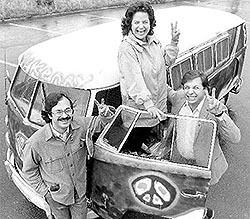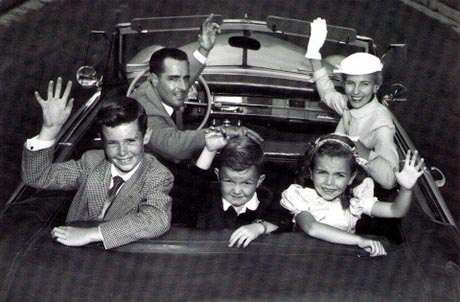The most conservative person I know is essentially an anarchist. She doesn’t like change. Despite being quite young, she’s uncomfortable with technology and wishes she never had to upgrade computers or pretty much any gadget. She got a manual typewriter last year and she plays LPs on something old folks used to call a “record player.”
But she doesn’t belong to a Republican women’s club. And she’s not voting for Mitt Romney in November. She doesn’t believe in voting, because she’s an anarcho-capitalist. How can a conservative be an anarchist?
We’ve come to associate words such as “liberal” and “conservative” with politics, but there’s a more general meaning that I wish we could go back to. In the political sense, the words have become useless. Today’s conservatives aren’t conserving anything. Today’s liberals want nothing like what liberals of the classical era wanted. So why do we keep using such useless labels?
In the most basic sense, a conservative person is one who’s more comfortable with the status quo — someone who doesn’t like rapid change and is happiest when surrounded by (at least the illusion of) stability. Merriam-Webster defines conservative as “tending or disposed to maintain existing views, conditions or institutions.” You can see that playing itself out in the lives of many people — in their social lives — but many of those people unthinkingly adopt so-called “conservative” politics simply because it’s labeled that way in the mainstream.
If you apply the definition — of maintaining what already is — a really conservative person would want to maintain big government and the welfare state that’s grown up for the last hundred years or so. In other words, we’ve reached the point that applying words such as “conservative” and “liberal” make a lot of sense in terms of temperament or social outlook, but almost no sense politically.
Your temperament should have little to do with the philosophical or political conclusions you come to. People who are conservative in temperament should reasonably be most attracted to a mushy kind of progressivism that has dominated the country for all of their lives, at least if they follow their temperament and not their brains to find another answer. People who are more liberal in temperament should be open-minded about looking for solutions outside the existing political and social frameworks, so they should be interested in new solutions that look beyond the nation-state.
 Whatever your political views — and however you define them — don’t blindly follow a political movement simply because the people in that movement share your temperament. Yes, the Republicans might be a bunch of suit-wearing and serious people who are in love with stuffy institutions, but they might not favor solutions in line with what you really find rational and moral. Yes, Democrats might be a bunch of free-spirited neo-hippies who talk about helping everybody, but they might not be fighting for things that are in line with what truly makes sense to you.
Whatever your political views — and however you define them — don’t blindly follow a political movement simply because the people in that movement share your temperament. Yes, the Republicans might be a bunch of suit-wearing and serious people who are in love with stuffy institutions, but they might not favor solutions in line with what you really find rational and moral. Yes, Democrats might be a bunch of free-spirited neo-hippies who talk about helping everybody, but they might not be fighting for things that are in line with what truly makes sense to you.
Think for yourself. Don’t just go along with one party because you know you’re conservative in nature and that party is supposed to be the conservative party. Don’t go along with another party because you know you’re liberal and open-minded and they claim to be the same.
Just because people use certain labels for their politics, it doesn’t mean they fit your temperament. Be willing to think for yourself. If you don’t think it’s possible, I’ll introduce you to the world’s most conservative young woman who also doesn’t believe in the legitimacy of the state. She thought her beliefs through for herself. You can, too.

 13 observations as we watch for the world to burn in Trump era
13 observations as we watch for the world to burn in Trump era Life as misunderstood stranger feels like walking through a fog
Life as misunderstood stranger feels like walking through a fog Suicide’s what happens when you can’t find reasons to keep living
Suicide’s what happens when you can’t find reasons to keep living